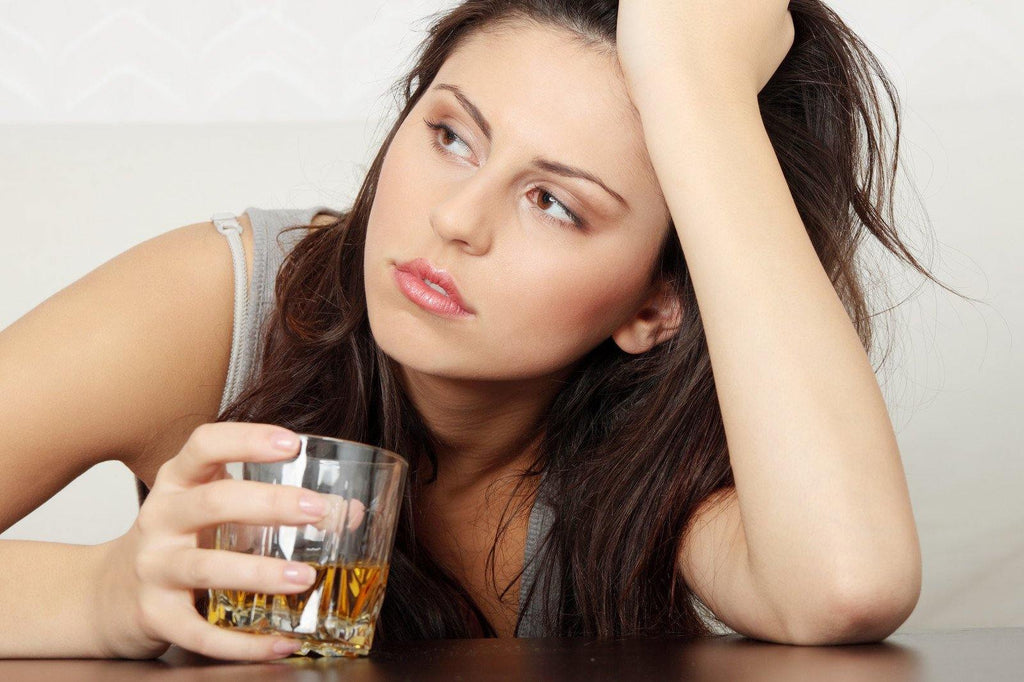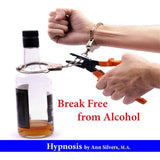How Alcohol and Anxiety Are a Bad Mix

This is a guest post from the staff of Drug Treatment Center Finder.
We all too commonly make the assumption that having a glass of red wine after a long and arduous day is a good way to unwind and relax the mind and body, and relieve any anxiety that may have been stirred up throughout the day.
This idea has become so ingrained into our culture, and many different cultures around the world, that it has become a staple of how we picture relaxation—and time off in general.
However, science shows that alcohol is not a good long-term anxiety reliever. Alcohol actually contributes to anxiety.
There are 2 causal links between alcohol and anxiety.
- The use of alcohol makes pre-existent anxiety worse.
- Alcohol abuse creates anxiety.
1. The use of alcohol makes pre-existent anxiety worse
People with already existent anxiety issues may resort to alcohol for its immediate relaxing effects on their anxiety.
However, while alcohol might soothe anxiety in the short-term, it is also creating a feedback loop that worsens anxiety.
Studies have shown that during the process of sobering up from alcohol, serotonin levels sink to a low that is exacerbated by anxiety. The loop is completed when the resultant low leads to further drinking.
This creates a mushrooming feedback loop that rewards alcohol abuse and repetition.
Further and more severe use of alcohol leads to evermore worsening anxiety issues, which will lead to further medicating of themselves by using alcohol even further, creating a nearly never ending cycle.
2. Alcohol abuse creates anxiety.
The other way alcohol and anxiety are linked, is the by the concept of “alcohol induced anxiety”—a very real and very severe problem in alcoholic circles.
Studies have shown that drinking vast amounts of alcohol over a long period of time induces anxiety and triggers panic attacks.
Prolonged use of the chemicals that make up alcohol (ethanol and methanol) alters the brain, changing the neurological landscape. These changes can create anxiety and panic attacks.
Anxiety symptoms
People with anxiety can have many different symptoms, such as the following:
- Fatigue
- Headaches
- Difficulty concentrating
- Feeling of impending doom
- Difficulty sleeping
- Nausea and stomach pains
- Diarrhea
- Easily startled
- Constant and persistent tension
- Restlessness
- Difficulty relaxing or unwinding
- Frequent bathroom breaks
- Spontaneous sweating
- Highly irritable
While the causes of anxiety are infinitely wide including stress, insufficient coping skills, and hormonal imbalances—the one more sinister cause and contributor to it is alcohol.
Thank you to the staff of Drug Treatment Finder for this post. You can contact Drug Treatment Finder at http://www.drugtreatmentcenterfinder.com/guide/.
Break Free from Alcohol Hypnosis
 Stop the fight between your conscious goals and your subconscious wants. Get your subconscious on board with quitting drinking.
Stop the fight between your conscious goals and your subconscious wants. Get your subconscious on board with quitting drinking.
Break Free from Alcohol can support any of your other sobriety efforts.
This recording can be used any time you have about 35 minutes to relax or as you are preparing for sleep. (It works even if you are sleeping while "listening" to the recording.)
Click here to find out more.
- Ann Silvers






Comments 2
Ann Silvers
Hi Michael
Thanks for the thanks.
—Ann
Michael Haber
Thanks for sharing!